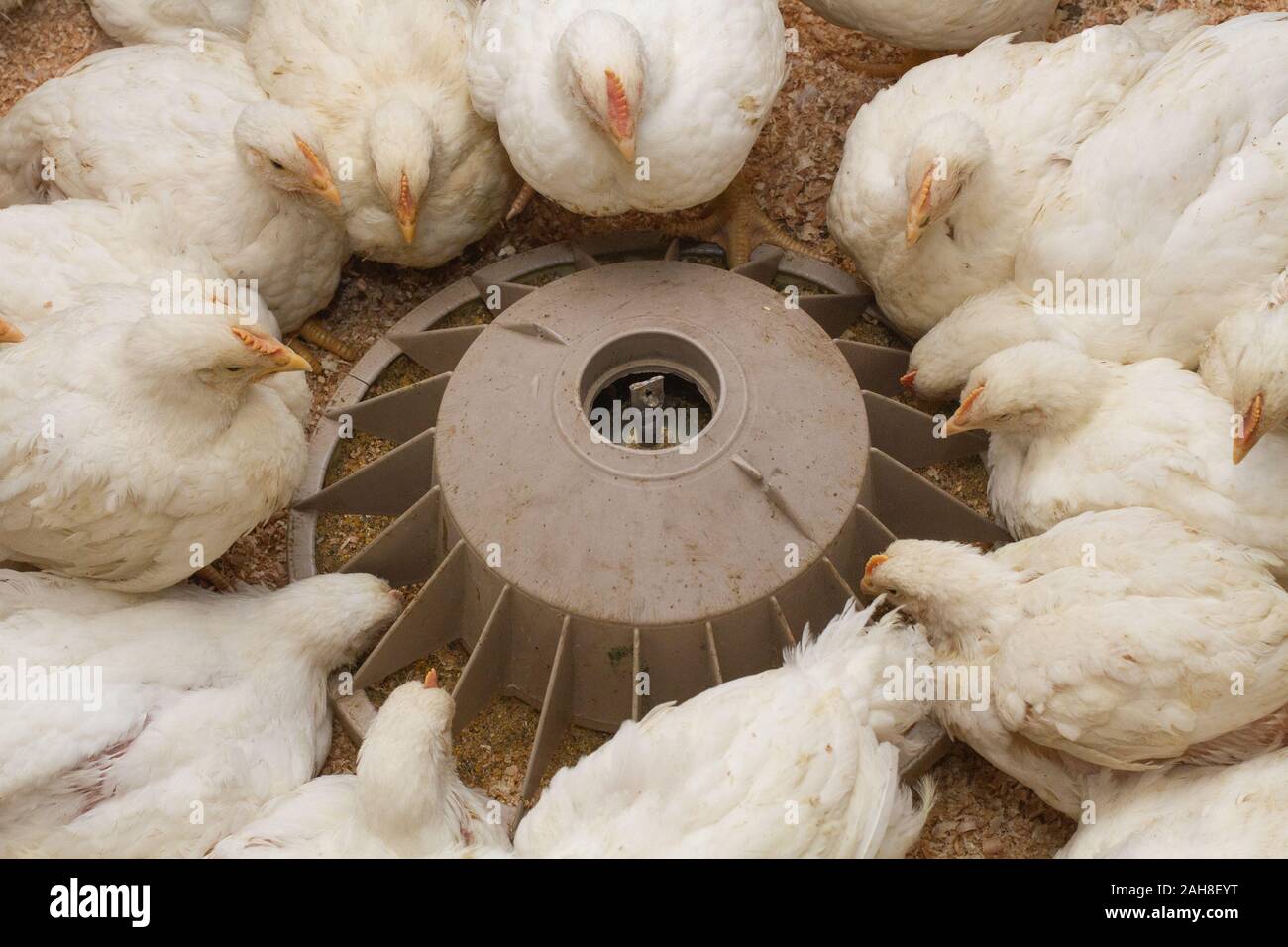Chickens are one of the most popular domestic animals and are kept by many people as pets, or raised for eggs or meat. To ensure healthy chicken husbandry, it is important to know what chickens eat and provide them with the right nutrition. Knowing what to feed chickens and how to manage their diet is key to keeping them healthy and productive. In this article, we will discuss what chickens eat, the benefits of providing a balanced diet, and how to ensure healthy chicken husbandry.
What Can You Feed Chickens?
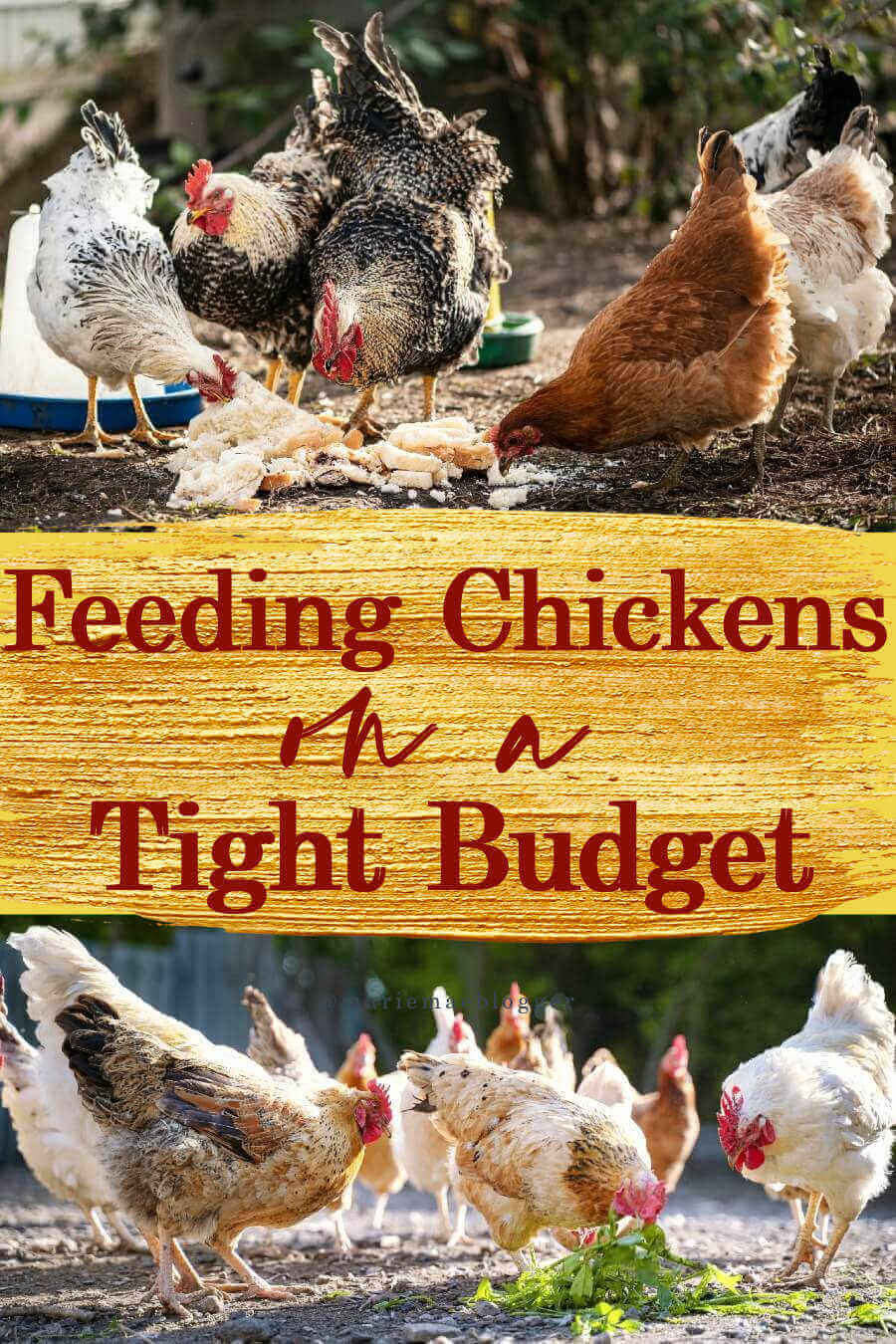
Grains and Seeds
Chickens can be fed a variety of grains and seeds, such as wheat, oats, barley, and sunflower seeds. These should be provided to chickens in moderation, as too much of these can lead to obesity and other health issues.
Fruits and Vegetables
Chickens can also enjoy a variety of fruits and vegetables, such as lettuce, carrots, apples, and melon. These can be given to chickens as treats, or as part of their regular diet.
Insects and Protein Sources
Insects and other protein sources, such as mealworms and crickets, are also great for chickens. These should be fed in moderation, as too much can lead to health issues.
Kitchen Scraps
Kitchen scraps can also be fed to chickens, but should be limited to fruits and vegetables, as cooked foods can lead to health issues. Scraps should be given in moderation, as too much can lead to obesity and other health issues.
In conclusion, chickens can enjoy a variety of grains, seeds, fruits, vegetables, insects, and kitchen scraps as part of their diet. However, it is important to remember to feed these items in moderation, as too much of certain foods can lead to health issues.
Hen Food List
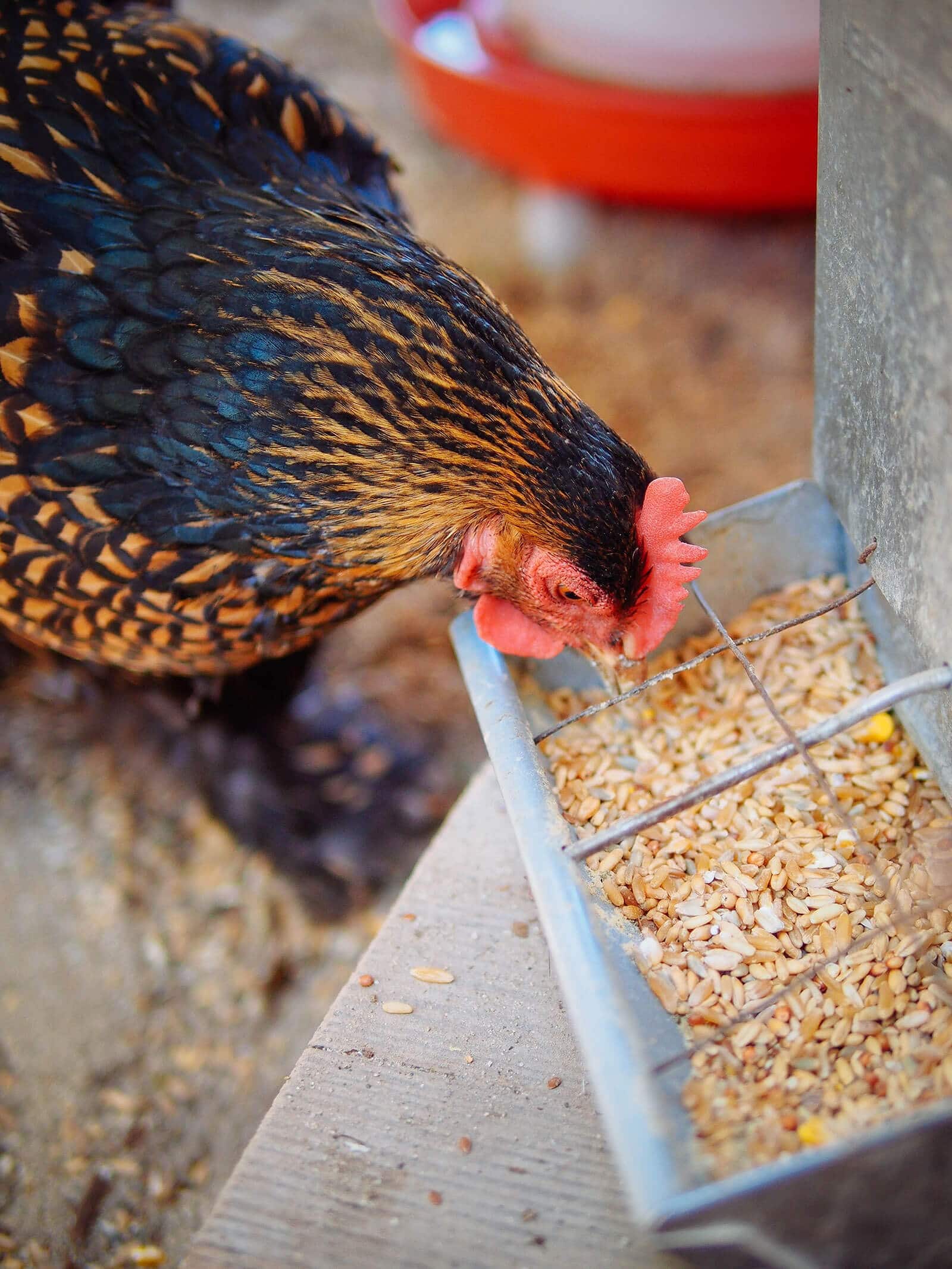
Grains and Seeds
Chickens love to eat grains and seeds, such as wheat, oats, corn, sunflower and pumpkin seeds. They provide essential nutrients and fats to keep your hens healthy.
Fruits and Vegetables
Fruits and vegetables are a great source of vitamins and minerals for chickens. Offer them apples, tomatoes, cucumbers, peppers, and other fresh produce.
Insects and Protein Sources
Insects such as mealworms, crickets, and earthworms are a great source of protein for chickens. They also enjoy cooked eggs and mealworms.
Kitchen Scraps
Chickens love to snack on kitchen scraps such as bread, rice, cooked pasta, and cooked vegetables. Avoid giving them raw meats and dairy products, as these can make them sick.
No matter what kind of food do chickens eat, it is important to provide a balanced and nutritious diet for your hens. A healthy diet will help them lay healthy eggs and stay strong and active.
Foods for Chickens
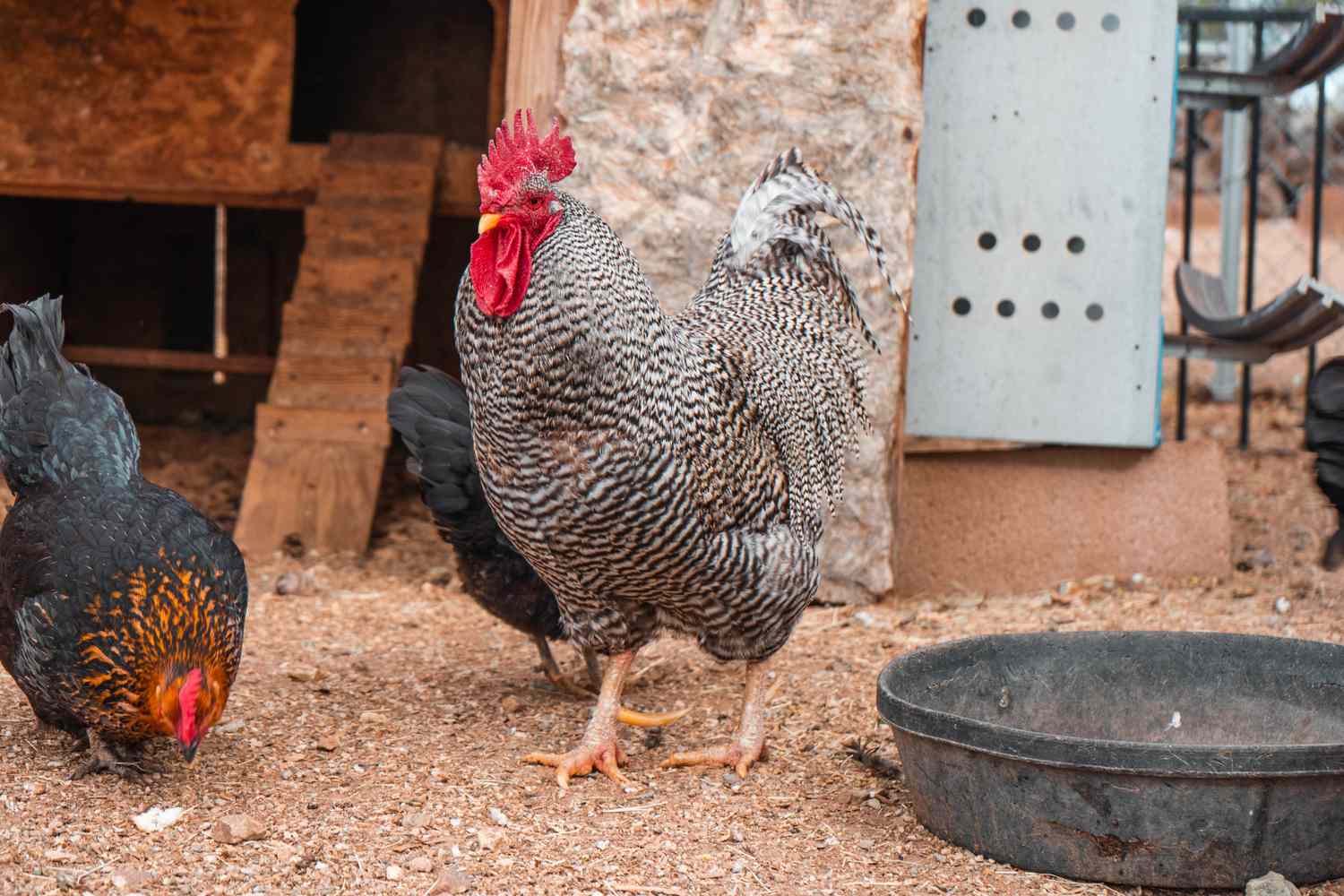
Grains and Seeds
Grains and seeds form the basis of chicken food and should form the majority of their diet. Offer a variety of grains including wheat, oats, barley, corn, and millet. Seeds such as sunflower, safflower, flax and sesame can be offered to chickens as a treat.
Fruits and Vegetables
Fruits and vegetables make up a healthy part of a chicken’s diet. Provide a variety of fresh produce such as carrots, broccoli, apples, and melon. Avoid giving chickens fruits or vegetables with a high water content such as watermelon, as chickens can become dehydrated from too much of this type of food.
Insects and Protein Sources
Insects such as mealworms, crickets, and earthworms are a great source of protein for chickens. They can also provide a healthy snack. Chicken feed formulated with fish meal, which is high in protein, can also be fed to chickens.
Kitchen Scraps
Kitchen scraps can be offered to chickens as an occasional treat. What can you feed your chickens? Avoid anything that has been heavily processed or contains high amounts of salt, sugar, or fat. Cooked food is better than raw food, as it is easier for chickens to digest.
What All Can Chickens Eat?
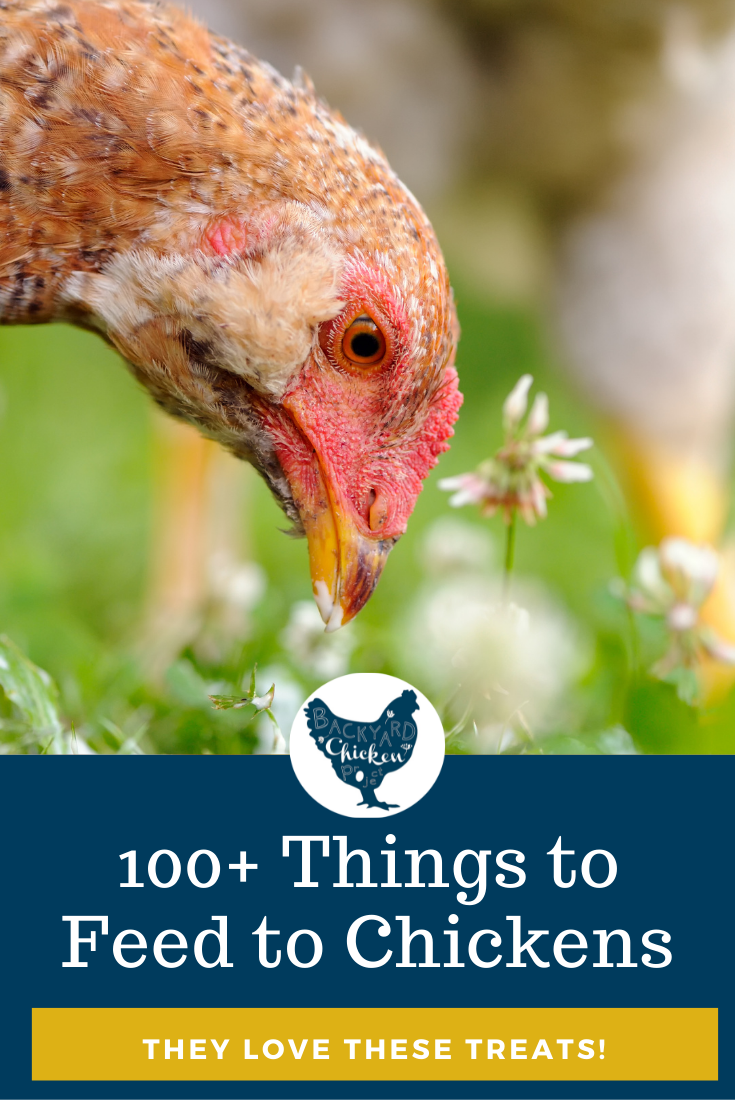
Grains and Seeds
Chickens can eat a variety of grains, including wheat, oats, rice and corn. In addition to grains, they also eat a variety of seeds, such as sunflower and safflower.
Fruits and Vegetables
Chickens enjoy many fruits and vegetables, including apples, pears, tomatoes, squash, carrots, and even grapes. They love grapes and will pick them off the vine if given a chance!
Insects and Protein Sources
In addition to grains and seeds, chickens eat a variety of insects and other proteins sources. Mealworms, crickets, and earthworms are all excellent sources of protein for chickens.
Kitchen Scraps
Chickens love kitchen scraps like cooked pasta, cooked rice, and cooked vegetables. They also enjoy yogurt, cottage cheese, and other dairy products. But be careful not to overfeed them these treats, as they can be high in fat and calories.
What Do Chickens Like to Eat?

Grains and Seeds
Chickens love grains and seeds – especially cracked corn, millet, wheat, barley, and sunflower seeds. For a healthy treat, try adding flaxseed or chia seeds to their diet.
Fruits and Vegetables
Chickens enjoy a variety of fruits and vegetables, including apples, pears, grapes, carrots, and sweet potatoes. Leafy greens, such as spinach, kale, and Swiss chard, are also a favorite.
Insects and Protein Sources
Chickens love bugs! Mealworms, crickets, and earthworms are all popular protein sources. They also enjoy cooked eggs and cooked meat, like diced chicken or fish.
Kitchen Scraps
Chickens can also benefit from scraps from your kitchen, such as cooked pasta, rice, or oatmeal. They may also enjoy a variety of cooked beans, although it’s best to limit these as they can cause digestive problems.
Overall, chickens are omnivores, meaning they enjoy a variety of foods. With a healthy diet, chickens can stay healthy and happy for years to come.
What Will Chickens Eat?
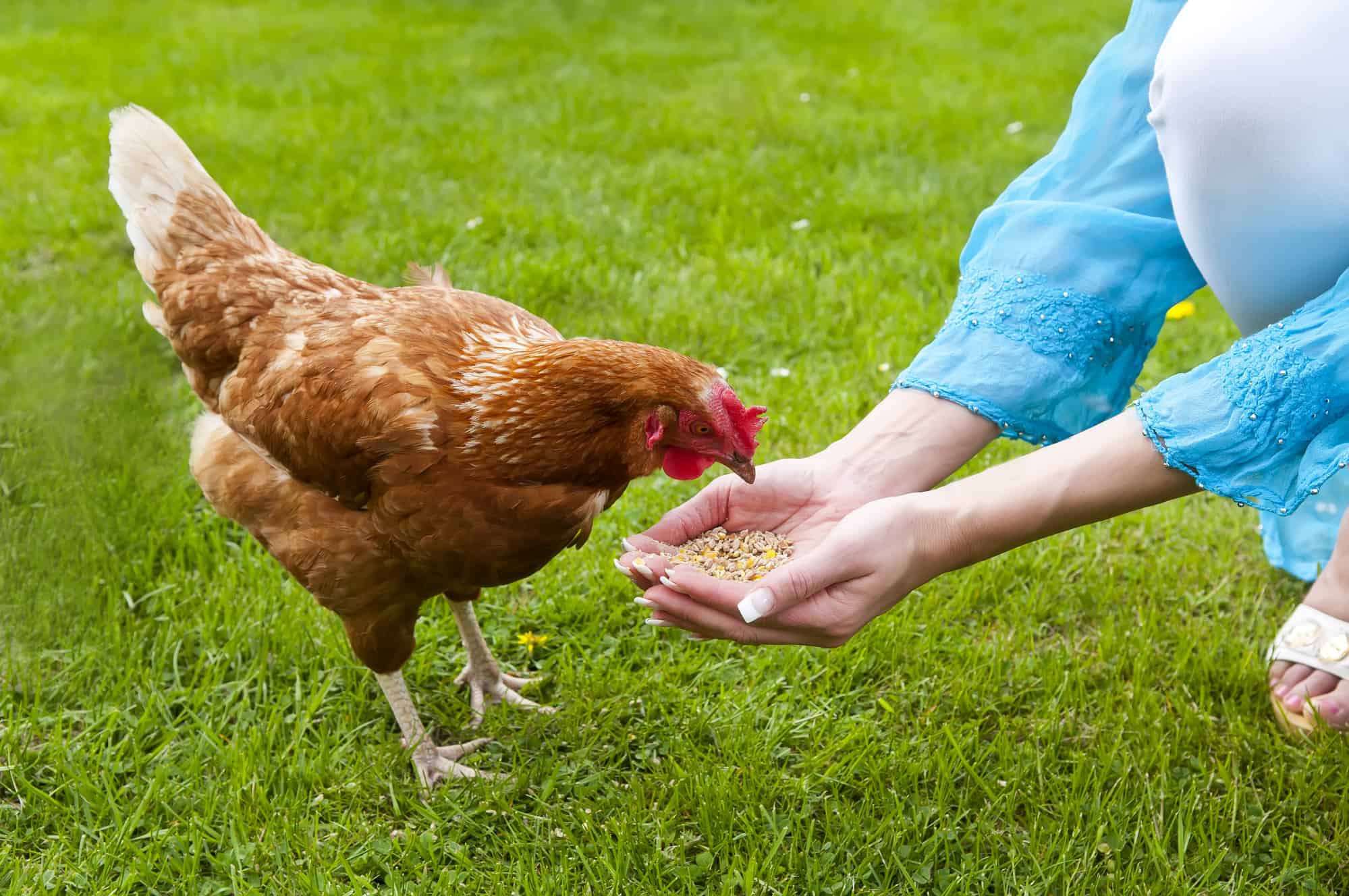
Grains and Seeds
Chickens love a variety of grains and seeds, including corn, millet, wheat, and oats. Make sure to offer whole grains that have not been processed, as those can contain additives or preservatives that are not suitable for chickens. Additionally, you can offer scratch grains, which are a combination of grains and seeds.
Fruits and Vegetables
Fruits and vegetables are another healthy option to feed chickens. Offer a variety of fresh produce, such as carrots, apples, spinach, and green beans. Avoid giving chickens citrus fruits, as they contain high amounts of acidity.
Insects and Protein Sources
Insects and other sources of protein, such as mealworms, are good for chickens. As scavengers, chickens love to hunt for protein sources in the yard. However, if you don’t have access to live insects, you can offer dried mealworms instead.
Kitchen Scraps
Kitchen scraps can also be offered to chickens as a healthy treat. This can include vegetable and fruit peelings, bread crusts, and pasta. However, make sure to avoid offering scraps that contain spices, salt, or other seasonings.
Remember, the key to healthy chicken husbandry is providing the right food to feed chickens.
Chicken Food List
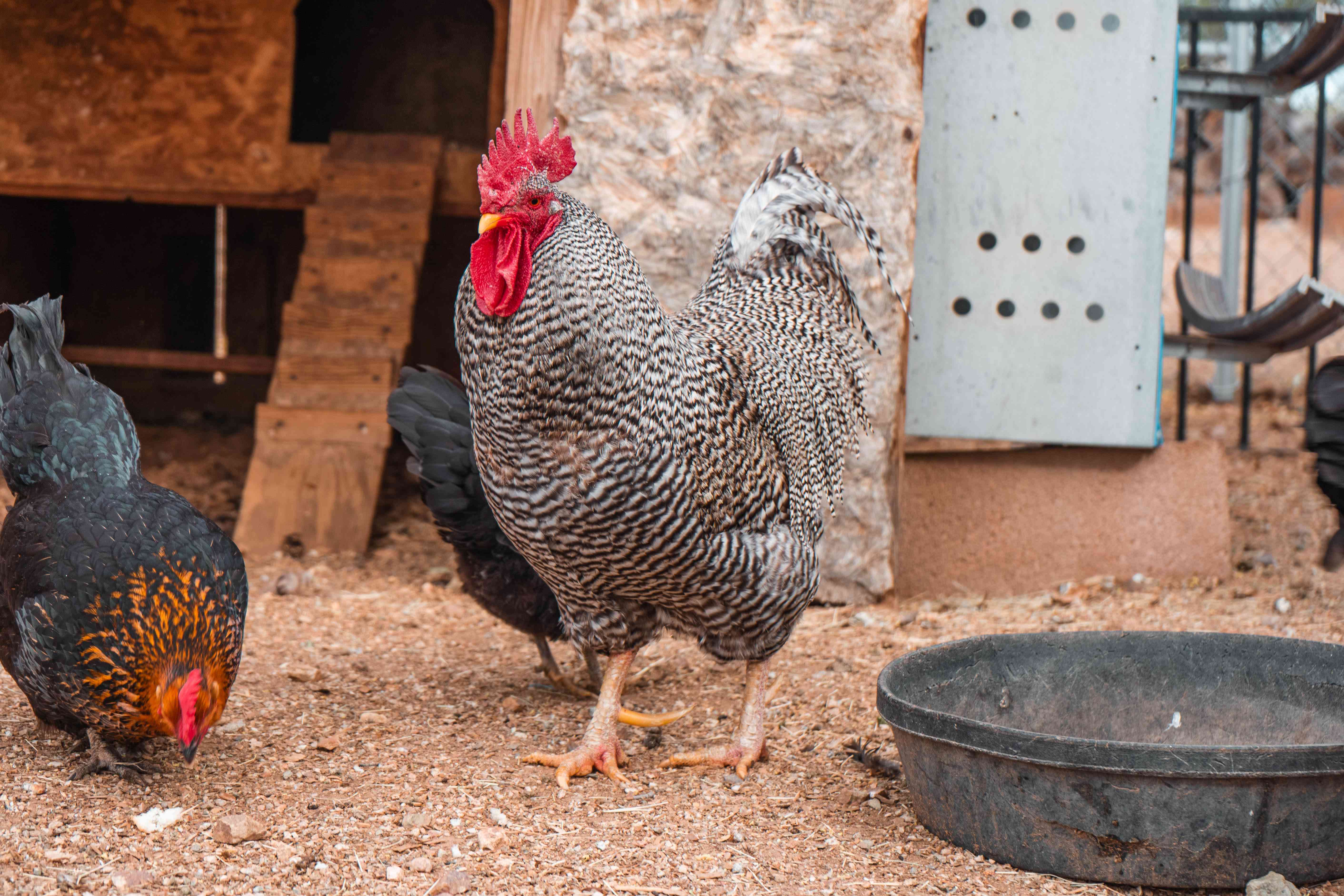
Grains and Seeds
Grains and seeds are the main source of carbohydrates for chickens. Some of the popular grains that chickens like to eat are: wheat, barley, oats, maize, rice, and millet. Additionally, sunflower seeds, pumpkin seeds, and flax seeds are also great sources of nutrition.
Fruits and Vegetables
Chickens love fruits and vegetables as part of their diet. Popular choices include: apples, melons, carrots, celery, cucumbers, and tomatoes. However, there are some foods that chickens should not eat, such as onions and garlic.
Insects and Protein Sources
Insects are an important source of protein for chickens. Crickets, mealworms, and earthworms are all great sources of protein. Additionally, chickens enjoy eating cooked meats, such as chicken and beef.
Kitchen Scraps
Kitchen scraps are a great way to add variety to a chicken’s diet. Scraps such as eggshells, bread, and cooked rice are all great ways to provide additional nutrition. However, it is important to be aware of what not to feed chickens, such as onions, garlic, and avocado.
In addition to providing chickens with a balanced diet of grains, fruits, vegetables, insects, and protein sources, it is important to provide them with the necessary vitamins and minerals. By providing chickens with a variety of foods, you can ensure healthy and happy chickens.
Foods What Do Chickens Eat
Grains and Seeds
Chickens benefit from a diet rich in grains and seeds, such as wheat, barley, oats, and millet. These grains should be mixed with grit and fed in a hopper.
Fruits and Vegetables
Fruits and vegetables such as apples, tomatoes, carrots, and broccoli are an excellent source of vitamins and minerals for chickens. These should be chopped into small pieces before feeding.
Insects and Protein Sources
Insects such as worms, grubs, and mealworms are an excellent source of protein for chickens. These can be fed directly to chickens or mixed in with their feed.
Kitchen Scraps
Kitchen scraps such as bread, pasta, and cooked vegetables can also be fed to chickens. However, it is important to be careful not to overfeed kitchen scraps, as they can cause health problems.
Frequently Asked Questions
What are the Benefits of Healthy Chicken Husbandry?
Healthy chicken husbandry provides numerous benefits, including improved animal welfare and a reduced risk of disease. Healthy chickens are less likely to be affected by common poultry diseases and can produce a higher quality egg or meat product. In addition, chickens that are properly cared for are more likely to live longer, which increases the profitability of poultry production. Finally, healthy chickens require less feed and water, reducing the cost of production and ultimately benefiting the producer.
How Often Should I Feed My Chickens?
- Daily: Provide a high-quality, balanced commercial diet that meets the nutritional needs of the chickens.
- Weekly: Supplement their diet with fresh fruits and vegetables.
- Bi-Monthly: Provide healthy treats like mealworms, live insects, and scratch grains.
- Yearly: Test the soil in the chicken run and adjust their feed accordingly.
Provide a consistent and regular schedule for feeding your chickens. Make sure their feed is always fresh and that their feeders are cleaned and filled regularly. Monitor the health of the chickens and adjust their diet as needed.
What kind of food should I provide for my chickens?
Chickens require a balanced diet to remain healthy and active. To ensure proper nutrition, provide your chickens with:
- Protein: Crickets, mealworms, and earthworms are excellent sources of protein for chickens.
- Grains: Scratch grains, corn, oats, and wheat provide essential carbohydrates and minerals.
- Greens: Vegetables, fruits, and leafy greens are excellent sources of vitamins and minerals.
- Calcium: Oyster shell, eggshells, and other calcium sources provide important nutrients.
- Water: Clean, fresh water should be provided at all times.
It is best to feed your chickens in the morning and evening, as they are most active during these times and need access to food. Additionally, consider supplementing your chickens’ diet with treats such as mealworms, fresh fruit, and cooked eggs.
How can I ensure my chickens are getting the proper nutrition?
Provide a balanced diet of grains, greens, and insects. Ensure that the feed you provide contains necessary vitamins and minerals for the chickens. Offer a variety of fresh, clean water sources and monitor the chickens to ensure they are drinking. Regularly rotate feed to ensure the chickens are getting a balanced diet. Provide a variety of treats, such as fruits and vegetables, to supplement the feed. Monitor the chickens’ health to ensure they are getting the necessary nutrients.
What are the Signs of an Unhealthy Chicken?
1. Poor Feather Condition: Unhealthy chickens often have dull feathers, are missing feathers, have bald patches, have discolored feathers, or have feathers that are matted and clumped together.
2. Lethargy: Chickens that are ill or injured may appear weak, listless, and lack energy.
3. Unusual Behavior: Unhealthy chickens will often have a lack of appetite, poor coordination, or may even be unresponsive.
4. Discharge from Eyes, Nose, or Mouth: Chickens can suffer from respiratory illnesses, eye infections, and other illnesses that cause discharge from the eyes, nose, or mouth.
5. Diarrhea: Chickens can suffer from many types of gastrointestinal illnesses that cause diarrhea.
6. Coughing and Sneezing: Unhealthy chickens may have a persistent cough or sneeze.
7. Loss of Appetite: Unhealthy chickens may not eat as much as healthy chickens, or may not eat at all.
8. Unusual Posture: Unhealthy chickens may have an abnormal posture, such as hunched up, standing with wings spread, or standing with head down.
Conclusion
Chickens are omnivores, so their diet should be varied. A balanced diet of appropriate feed, fresh water, and extra treats will help ensure healthy and happy chickens. While there is no one-size-fits-all diet for chickens, poultry feed, oyster shells, and occasional treats can keep them healthy and happy. With careful consideration and planning, chicken husbandry can be a rewarding and successful experience.
